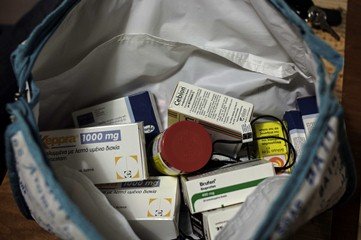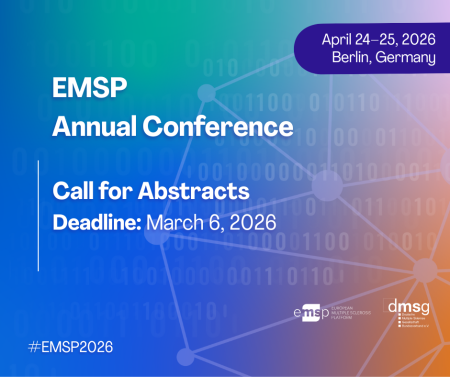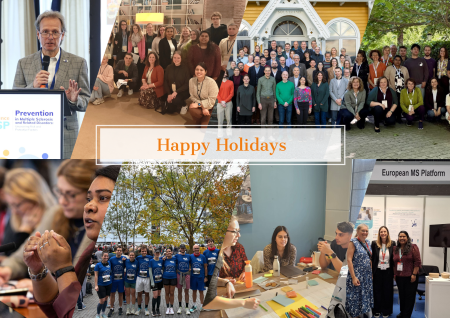
Clinical Drug Trials in Pediatric MS: Issues, Challenges and Hopes
28.02.2015by Jon Temme, MSIF Coordinating Consultant to the International Pediatric MS Study Group
Many new medications to treat multiple sclerosis (MS) are already or will soon be approved as new options in the treatment of multiple sclerosis in adults. However, MS can be observed as early as 2 years of age and becomes more frequent after the age of 10. Most of these children are now receiving medications approved for use in adults despite the fact that these medications have not been formally evaluated by clinical trials in children. Unfortunately, as in adults, close to 40% of children or adolescents have to stop treatment due to intolerance, toxicity or persisting relapses, supporting the need for new therapeutic options in children.
Two clinical trials
At the present time, two phase III clinical trials are actively recruiting. One is called PARADIGMS which is testing in pediatric patients the safety and efficacy of Fingolimod (a disease modifying therapy approved for used in adults). The trial is designed to be a 24-month study comparing Fingolimod to interferon beta 1A (Avonex). Its goal is to recruit 190 subjects between the ages of 10-17 inclusive. The first patient first visit occurred in July, 2013 and much effort will be put into recruitment to achieve the hoped-for outcomes of a successful trial. Detailed and regularly updated information about PARADIGMS can be found at http://clinicaltrials.gov/show/NCT01892722.
A second trial, called TERIKIDS, started in July, 2014. This trial is testing the safety, efficacy and pharmacokinetics in a pediatric population of Teriflunomide, a disease modifying therapy approved for used in adults. The trial is designed to be a 24-month study comparing Teriflunomide to placebo. Its goal is to recruit 165 subjects between the ages of 10-17 inclusive. In this trial, much effort will also be put into recruitment to achieve the outcome of a successful trial. Detailed and regularly updated information about TERIKIDS can be found at http://clinicaltrials.gov/show/NCT02201108.
In addition to these two trials currently recruiting, further clinical trials for children are anticipated in the coming years. If you are interested in learning more about participation in the current trials or any of the others that are expected to be undertaken in the not-too-distant future, please contact the IPMSSG at ipmssg@msif.org.
Importance
Why are clinical trials so important? There are several overall benefits of conducting therapeutic studies in pediatric MS:
- To gain accurate information regarding safe and effective dosing of medications
- To assess short-term and long-term safety of medications
- To confirm whether there is a clinical benefit of treatment in children (especially in young children), identical to that observed in adult MS patients
- To gain regulatory approval for drugs particularly in countries and regions where insurance coverage and subsequent use is dependent on regulatory acceptance of agents.
- To increase knowledge on natural history and biology of the disease and to develop individualized therapies for pediatric MS
Challenges
What are the challenges? Pediatric MS is a rare disease. Estimates are that there are currently about 5,000 children around the world living with a confirmed diagnosis of MS. Thus, the number of recently diagnosed children who can be enrolled in a study is very small – perhaps several hundred a year at most. Compare that to adult MS trials, in which often 1,000 or more subjects are enrolled in a pivotal clinical trial. In addition to the challenges of enrolling sufficient numbers of children, testing medications in children requires additional safety monitoring which means more clinic visits for children and their families, many of whom may live quite a distance from a centre that has the expertise to be a study site. Finally, a study site may need additional staff and equipment resources to be a part of such an intense study and this sometimes means interested centres do not have the needed institutional support to participate.
MS Study Group
For several years, the International Pediatric MS Study Group (IPMSSG) has been actively engaged with the many issues involved in conducting successful clinical trials in pediatric MS. The IPMSSG is a voluntary association of nearly 150 academic physicians and researchers treating and/or studying MS in children. Over 30 countries are represented. The Study Group has provided leadership to the medical community, regulatory agencies and the pharmaceutical industry with respect to clinical trials in pediatric MS. It is committed to seeking safe and effective treatments for children with MS by studying agents in well-structured, robust clinical trials, as mandated by regulatory authorities. This is reflected in “International Pediatric Multiple Sclerosis Study Group Clinical Trials Summit: Meeting Report” available at: http://www.neurology.org/content/80/12/1161.full
EMSP, as part of its European Code of Good Practice, has endorsed the IPMSSG Consensus Paper on the evaluation of new and existing therapeutics in pediatric MS. To learn more about the EMSP’s perspective, click here.
 Your Account
Your Account


